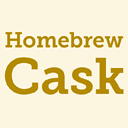Top Chef Habitat Alternatives for Streamlined Application Delivery
Chef Habitat is a powerful automation tool designed to make applications independent of specific infrastructure environments, allowing them to travel seamlessly across containers or PaaS. While Chef Habitat offers robust capabilities for packaging and managing applications, organizations often seek alternatives that better align with their existing workflows, technical stacks, or specific needs. This article explores the best Chef Habitat alternative options available to help you streamline your application delivery.
Top Chef Habitat Alternatives
Whether you're looking for different approaches to virtualization, container orchestration, package management, or simply a more lightweight solution, there's an alternative to Chef Habitat that might be a perfect fit. Here are some of the leading contenders:

Homebrew
Homebrew is a free and open-source package manager primarily for macOS, though it's also available for Linux. It simplifies the installation of UNIX tools that aren't included by default. While not a direct Chef Habitat alternative for application packaging, Homebrew excels at managing command-line tools and libraries, making it an excellent choice for developers who need to set up their development environments efficiently on Mac and Linux systems, featuring a robust command line interface and package installing capabilities.

Vagrant
Vagrant is a free and open-source tool for building and managing virtualized development environments. It allows developers to create and configure lightweight, reproducible, and portable environments for consistent development workflows. Supporting platforms like Mac, Windows, Linux, and various virtualization providers (VirtualBox, VMware), Vagrant is a strong Chef Habitat alternative for teams focusing on local development environment consistency and virtual machine management, offering features like cluster management and virtualization.

BitNami Application Stacks
BitNami Application Stacks provide an incredibly easy way to deploy popular open-source software. These free and open-source stacks bundle an application with all its dependencies, making them ready to run on Mac, Windows, Linux, and web platforms. For users seeking a straightforward one-click installation solution for common web applications (like LAMP, WordPress), BitNami is a valuable Chef Habitat alternative for rapid deployment and server management.

Kubernetes
Kubernetes is a free and open-source orchestration system for automating the deployment, scaling, and management of containerized applications. It's a highly robust and widely adopted platform for managing Docker containers. As a powerful Chef Habitat alternative, Kubernetes is ideal for complex, large-scale deployments on web platforms, offering advanced features like container orchestration, hypervisor integration, and virtualization capabilities.

Flatpak
Flatpak is a free and open-source framework for distributing desktop applications on Linux. It addresses the challenges of packaging applications for diverse Linux distributions by bundling dependencies, ensuring consistent execution. As a Chef Habitat alternative focused on desktop application distribution, Flatpak offers containerization, cross-platform compatibility, multiple repository support, and sandboxing features for secure and reliable application delivery on Linux.

Snapcraft
Snapcraft, or Snaps, are software packages designed to be simple to create, install, and run on Linux. They auto-update and are safe due to their bundled dependencies and isolation. Similar to Flatpak, Snapcraft is a free and open-source Chef Habitat alternative for Linux users seeking cross-platform, containerized application distribution with a strong emphasis on ease of use and security.

AppImageKit
AppImageKit allows you to package desktop applications as AppImages that run on various common Linux-based operating systems without installation. This free and open-source tool provides a simple, self-contained distribution format. As a Chef Habitat alternative for Linux desktop applications, AppImageKit is ideal for developers who want to provide a portable, executable application that works across many distributions.

Zero Install
Zero Install is a free and open-source, decentralized, cross-distribution software installation system. It supports shared libraries and user sharing, providing a unique approach to application deployment. Available for Mac, Windows, Linux, BSD, and Solaris, Zero Install presents a flexible Chef Habitat alternative for those seeking a more decentralized and efficient way to manage software across various platforms.

Homebrew Cask
Homebrew Cask extends Homebrew's functionality to provide a friendly command-line workflow for managing macOS applications distributed as binaries (like `.app` files). It's implemented as a Homebrew extension and is free and open-source. For Mac users, Homebrew Cask is an excellent Chef Habitat alternative for simplifying the installation and management of graphical applications alongside command-line tools, offering a unified developer experience.

Last.Backend
Last.Backend is a free and open-source system for automating the deployment, scaling, and management of containerized applications, specifically on Linux. It offers features like continuous deployment and continuous integration with support for Docker. As a comprehensive Chef Habitat alternative, Last.Backend is suitable for teams focused on robust CI/CD pipelines and the management of containerized workloads in a Linux environment.
The landscape of application automation and delivery is diverse, and the best Chef Habitat alternative depends on your specific operational needs, existing infrastructure, and team expertise. From lightweight package managers to full-fledged container orchestration systems and virtual environment tools, each alternative offers unique strengths. We encourage you to explore these options further to find the solution that best empowers your application development and deployment workflows.